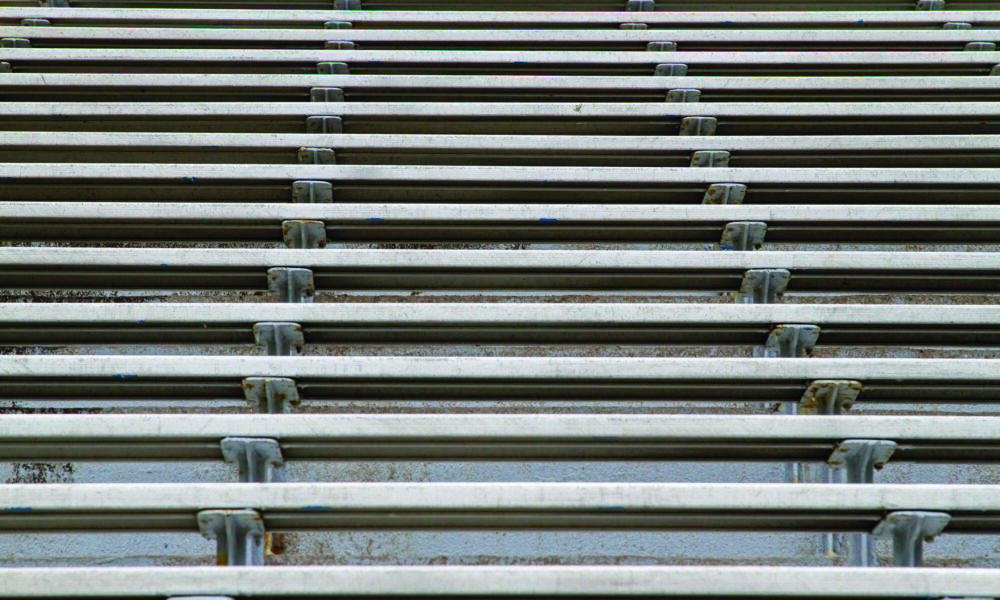McGill has a long history of pioneering innovation within the sports world: James Naismith, the creator of basketball, studied at McGill, the university’s annual carnival hockey game first took place in 1883, and McGill participated in the first American football game of all time.
In April 1874, McGill played Harvard in what is widely viewed to be the first time that North American football rules were played with, otherwise known as Boston rules. Next year will mark the 150th anniversary of this first football game, though most are likely unaware of the milestone and McGill has not made any public plans to celebrate this momentous occasion.
This speaks to a wider issue within McGill varsity sports. McGill has struggled to maintain school spirit around its sporting events, and fans in attendance are often few. The administration has previously expressed that they would increase ticket sales if there was higher demand. Yet, playoff games and rivalry games often fail to generate enough interest for McGill to expand how many tickets are sold. Leaving fans out of the stadium delivers a weak atmosphere at our games, both diminishing the accomplishments of McGill’s student athletes and failing to build a cohesive community culture.
Next week is the Redbirds’ homecoming football game against Concordia, and players are concerned about a lack of publicity for the game. Fourth-year offensive lineman Klaus Calixte wished that there was a larger effort to make homecoming an event for all of McGill sports.
“The stadium should be opened to 100 per cent capacity for homecoming, yet there is little marketing done by the school to even sell these tickets,” Calixte told //The Tribune//. “We have a generational QB [quarterback] talent in Eloa Latendresse-Regimbald and Scott Walford, a third-round draft pick to the NHL [on the hockey team]. People should come see them!”
The lack of engagement with our teams not only delegitimizes the hard work of student athletes but reflects poorly on McGill’s university culture. Is the problem due to post-COVID students who never saw pre-COVID sporting events at McGill? Or, is there a pattern of apathy stemming from McGill Athletics?
For some varsity teams, this lack of school spirit extends beyond having a limited number of fans at games. The Martlets’ field hockey team has not played a home game since the 2018-19 season. According to Madeline Cohen, the team’s captain, McGill Athletics has not provided a “solid reason” as to why they cannot play regular season games at home, and also claims their Ontario University Athletics’ competitors have expressed a willingness to travel.
“Athletics is so fan oriented,” Cohen said. “Most of our athletes would tell you that they could name 10 people instantly who would love to come to a game. We all have huge support bases here [….] But there isn’t even a video stream for them to be able to watch us play.”
If McGill Athletics cares about creating a McGill culture around our sports, there are lots of simple steps they can take. McGill must follow in the footsteps of schools by offering free tickets to their students and faculty like the University of Toronto or a package with tickets at less than one dollar per game like the Université du Québec à Montréal. Lowering ticket prices for students and having a set amount of free early bird tickets, in combination with greater marketing efforts on campus could easily increase fan engagement. Those who frequent the quad will notice Marty the Martlet advertising a few football games a year, which begs the question: Why can’t this happen for every game and for more teams?
By not playing into historic sporting events and disappointingly marketing players and teams, and an overall lack of care to its sports teams, they are doing a disservice to their athletes, fans, and McGill culture. The McGill community must celebrate the talent we have at our school and revive our sports culture.
Sports Editor and Martlets field hockey goalkeeper Anoushka Oke did not contribute to this article.









